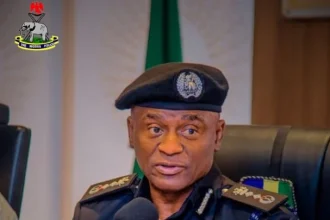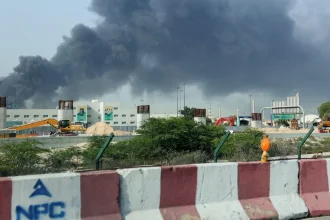Workers in 109 Nigerian embassies worldwide have not received their salaries for the past five to six months, causing financial hardship for many foreign service officers.
According to the PUNCH report, the affected workers, who serve under the Ministry of Foreign Affairs, are struggling to pay rent, school fees, and other basic needs due to the delay in salary payments.
The acting spokesperson of the Ministry of Foreign Affairs, Kimiebi Ebienfa, confirmed the issue, stating that efforts were being made to resolve it.
“The ministry is aware of the difficulties faced by the missions abroad, and the leadership is working seriously to address the situation,” he said.
Ebienfa expressed hope that the recent passage of the 2025 Appropriation Act by the National Assembly would improve the ministry’s financial situation once signed into law by President Bola Tinubu.
Despite an increase in budgetary allocations for the Ministry of Foreign Affairs over the years, embassies continue to struggle with inadequate funding.
In 2021, the ministry was allocated N73.14 billion, with N34.38 billion for salaries. By 2024, the budget had grown to N160.06 billion, with N99.76 billion set aside for salaries. For 2025, the proposed budget is N353.77 billion, including N214.64 billion for personnel costs.
The government has also earmarked N53 billion to renovate 103 foreign missions this year. However, many embassies are unable to cover basic operational costs.
A senior ministry official, speaking anonymously, blamed the financial crisis on poor funding and delays in approving the 2025 budget.
“This is mid-February, and the budget has not been approved or signed. How are the missions faring under this financial neglect? Some staff in most foreign missions have not been paid for six months,” the official said.
Another source revealed that embassy workers were unable to perform their duties effectively due to a lack of funds.
“The missions are struggling to stay afloat, and the lack of funds has a direct impact on their ability to serve Nigerians abroad,” the source added.
Experts have linked the worsening situation to the delay in appointing new ambassadors after President Tinubu recalled 83 envoys in September 2023.
A foreign affairs analyst, Charles Onunaiju, said the absence of heads of missions had created leadership gaps, affecting decision-making and financial matters.
“The proper head of mission to make adequate representation to Nigeria on the plight of the staff is not there,” he said.
He added that diplomatic positions were often given as political rewards instead of being filled by competent professionals.
“The politicians have been negligent of the foreign service and diplomatic service,” Onunaiju stated.
A retired diplomat, Rasheed Akinkuolie, traced the problem back to the military era, stating that funding for Nigerian embassies had been inadequate since 1983.
“The military did not appreciate the critical role Nigerian missions play in economic, social, security, and image of Nigeria abroad,” he explained.
He further noted that the 2025 budget, when divided among the 109 missions, was insufficient.
“The budget of the Ministry of Foreign Affairs in 2025 is N353 billion or $233 million. If this is spread across 109 missions, this amounts to very little,” he said.
Akinkuolie recommended a return to the old system of budgeting in both US dollars and naira to address the problem.
“The allocation to missions should be remitted directly in USD by the Central Bank, while the component for running the ministry in Nigeria should be in naira,” he suggested.
Another retired ambassador, who chose to remain anonymous, also criticized the handling of foreign exchange and the lack of timely salary payments.
“This issue has been persisting for quite some time, and even the non-deployment of new ambassadors is linked to financial challenges,” he said.
The former envoy expressed frustration with the system but admitted he was relieved to no longer be affected by the crisis.
With embassy workers struggling to meet their needs and embassies accumulating debts, stakeholders have called for urgent government intervention to address the funding crisis and prevent further disruptions in Nigeria’s foreign service operations.











